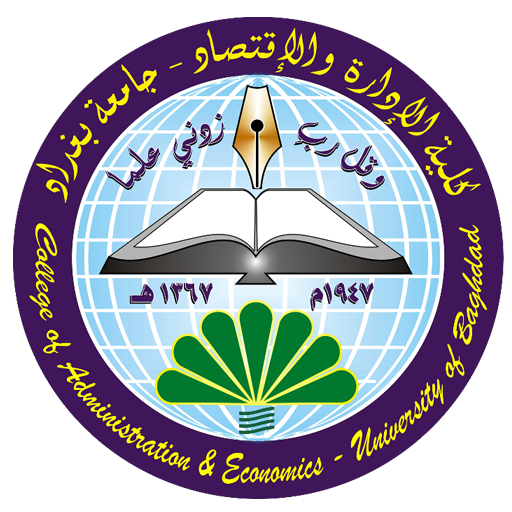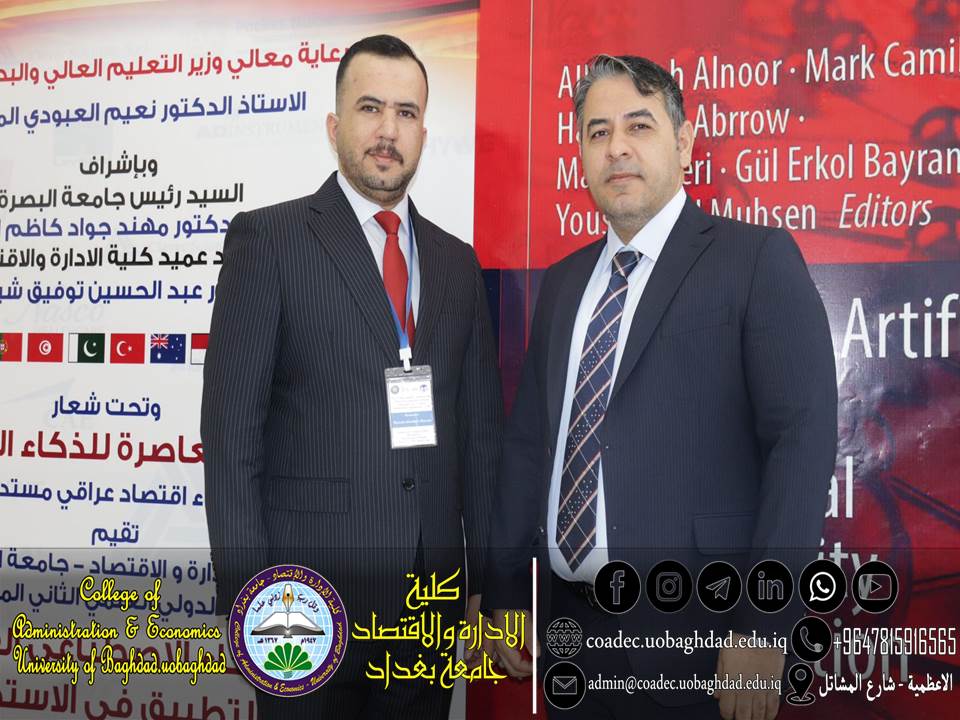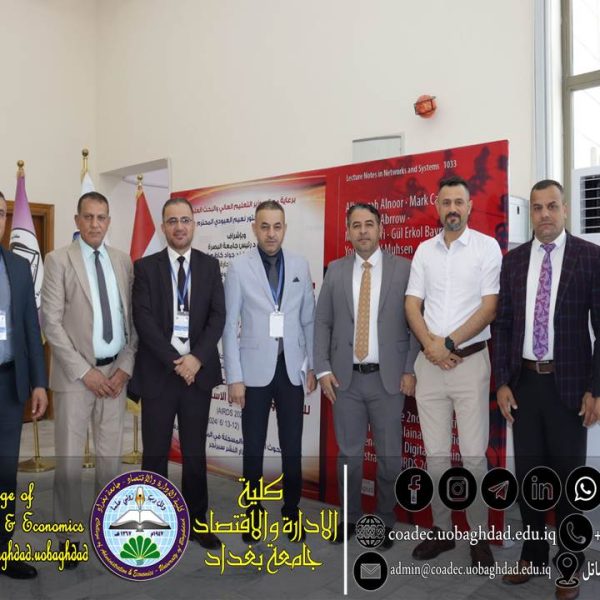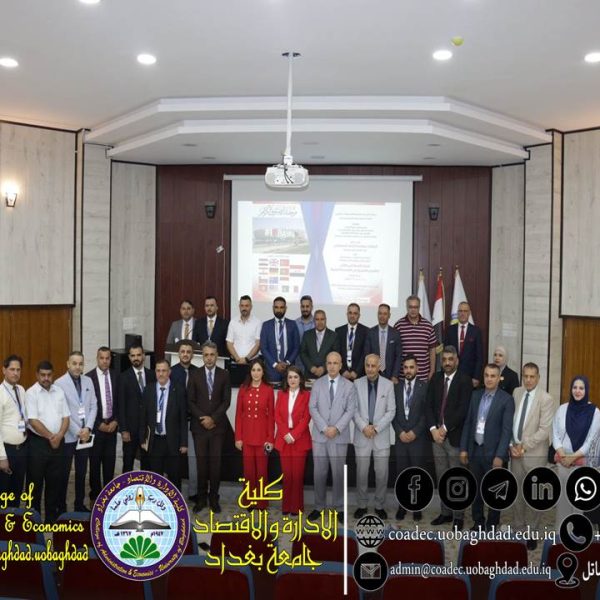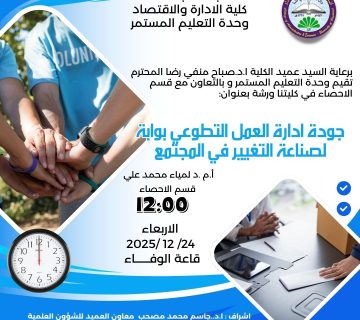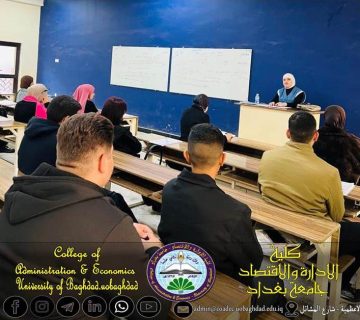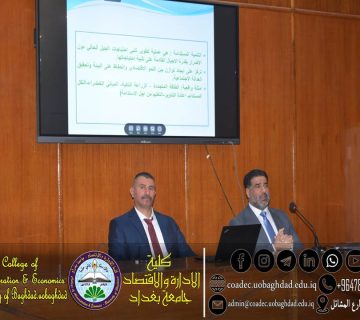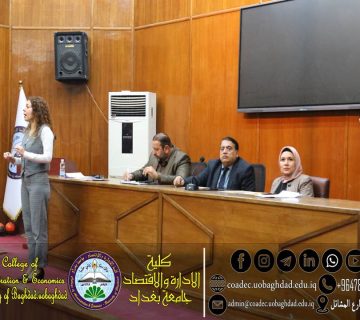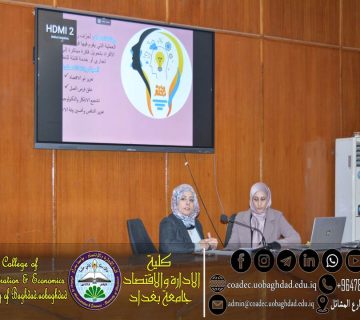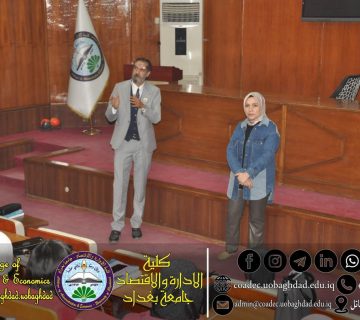Assistant Professor Dr. Hakim Hamoud Flayeh from the Department of Financial and Banking Sciences participated with two research papers in the activities of the Second International Scientific Conference organized by the University of Basra / College of Administration and Economics under the theme “Contemporary Trends of Artificial Intelligence for Building a Sustainable Iraqi Economy” under the title “Explainable Artificial Intelligence and Its Application in Digital Sustainability” representing our college.
The first research paper, titled “Harnessing Technological Innovation and Artificial Intelligence in Iraqi Commercial Banks to Achieve Sustainability,” was conducted in collaboration with foreign professors from Tunisia and faculty member Nahran Qasim from the Department of Financial and Banking Sciences. The research aimed to measure the mediating role of artificial intelligence (AI) in the relationship between technological innovation (TI) and competitive advantage (CA) in Iraqi commercial banks. AI dimensions included ADM and CBSMI, while TI dimensions encompassed ATM, MPA, and POS. The CA dimensions included cost, quality, and market share. The research sample consisted of employees from twelve Iraqi commercial banks listed on the Iraqi Stock Exchange, totaling 399 employees, including managers, accountants, auditors, and consultants. The Smart-PLS program was used to measure the survey results. The findings indicated that ATM, MPA, and POS for TI affect the ADM and CBSMI dimensions of AI. There is a statistically significant positive relationship between ATMs, MPA, and POS on MPA, ATMs, and POS on cost, quality, and market share for CA. The research concluded that AI dimensions are important mediators in the relationship between TI and CA dimensions.
The second research paper, in collaboration with foreign professors from Iran and Professor Hussein Qusay Aboud from the Department of Financial and Banking Sciences, titled “Artificial Intelligence and Trends Using in Auditing: A Bibliometric Analysis,” aimed to provide an overview of the development of auditing and AI research published in the Scopus database to track the evolution of scientific activities that can pave the way for future studies by highlighting gaps in this field. The study identified 614 studies in this field spanning from 1976 to 2024, focusing on 65 research papers related to auditing and AI from 2015 to 2024, based on bibliometric analysis using VOSviewer. This paper highlights the current research trend in AI and auditing through a detailed bibliometric analysis of the research trends and developments over the past ten years, due to the increasing reliance on AI by companies and the rising number of AI-sponsoring companies, including investigating the countries, journals, and keywords for research. The results indicate that researchers in the field of AI use in auditing show a convergence in the use of this technology between developing and developed countries alike. The VOSviewer analysis found that decision-making is the main reason for auditing firms to adopt AI. The paper selected the most publishing countries and the most common keywords. It provides evidence of a lack of AI adoption by many auditing firms in various countries. Finally, the data analysis identifies several potential research issues to be investigated concerning the relationship between auditing and AI, serving as an area for future research. Again, this study also provides a framework for auditing firms to focus on AI-related areas.
The research will be published in the proceedings of the “2nd International Conference on Explainable Artificial Intelligence in the Digital Sustainability Administration (AIRDS 2024)” by the global publisher Springer, indexed within the global Scopus database. This scientific activity is part of our college’s efforts to enhance its local and international ranking.

